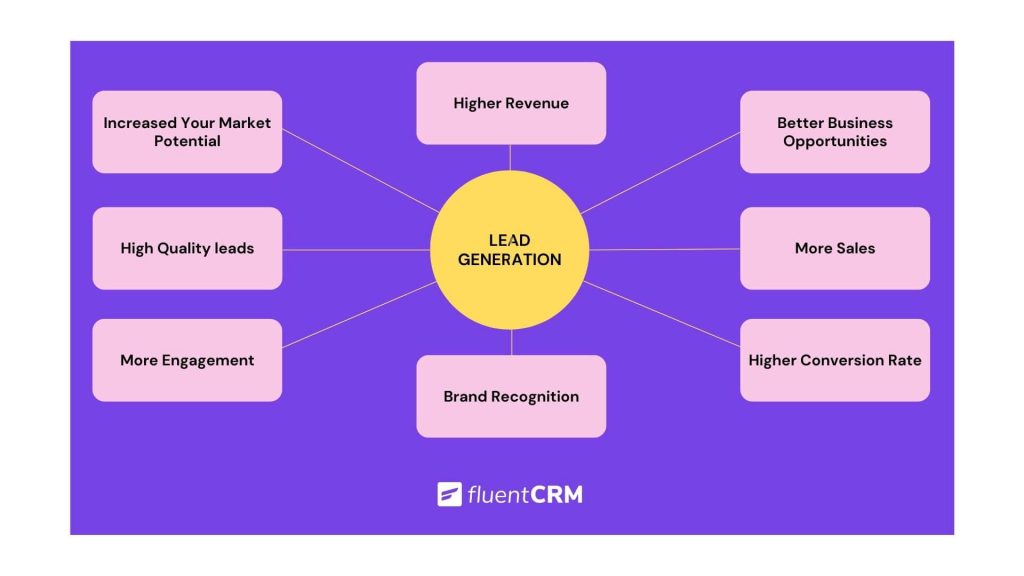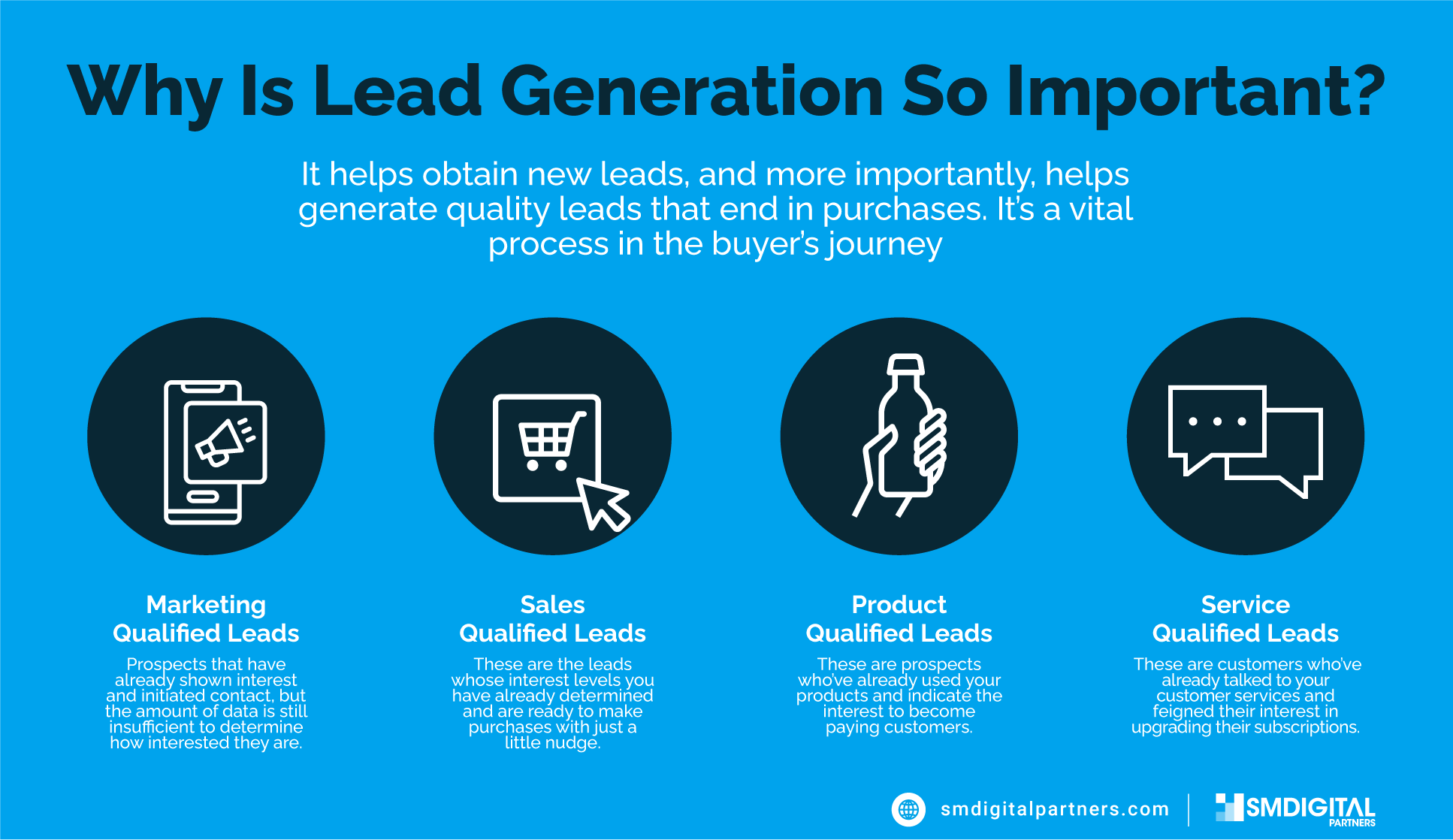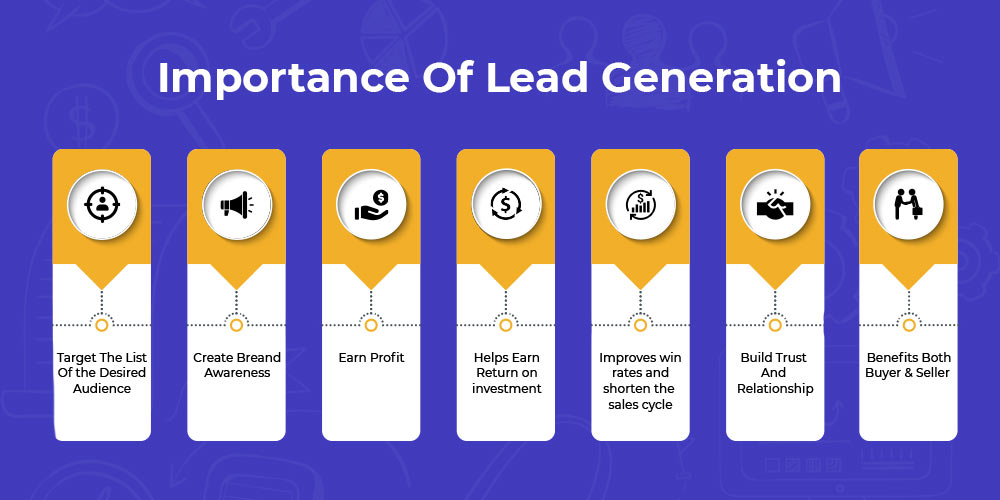Imagine unlocking the secret to consistently attracting new clients and customers to your business. Picture the growth, the opportunities, and the success that could follow.
This is the power of lead generation, a crucial process that can transform how you connect with potential customers. But why is it so important for your business? What makes it the lifeline of thriving companies? You’re about to discover how mastering lead generation can be a game-changer.
It’s not just about collecting names and numbers—it’s about creating a reliable stream of interested prospects, eager to learn more about what you offer. You’ll learn why focusing on lead generation is essential for your business’s growth and survival, and how you can harness its potential to stay ahead of the competition. Get ready to dive into strategies that can shape the future of your business.

Credit: fluentcrm.com
Lead Generation Basics
Capturing potential customers is crucial for any business. Lead generation helps identify and engage interested individuals. This process builds a strong customer base and increases sales opportunities.
Lead generation is crucial for any business looking to grow. It’s the process of attracting and converting strangers into potential buyers. Understanding the basics of lead generation can set the foundation for a successful marketing strategy.
Defining Lead Generation
Lead generation is all about sparking interest in your product or service. It’s the first step in the sales funnel, setting the stage for future engagement. Imagine walking into a store and being greeted by a friendly staff member who offers help without being pushy. That initial interaction is similar to lead generation in the digital world.
Identifying your target audience is essential. Who are they? What problems do they need solving? Answering these questions can help you craft messages that resonate.
Consider using multiple channels like social media, email campaigns, and landing pages to reach your potential customers. Diversifying your efforts can increase your reach and effectiveness.
Types Of Leads
Leads come in different forms. Marketing Qualified Leads (MQLs) are those who have shown interest through actions like downloading an ebook or subscribing to a newsletter. They’re not ready to buy yet, but they’re on the radar.
Sales Qualified Leads (SQLs) are closer to making a purchase decision. They’ve interacted with your sales team or perhaps requested a demo.
Understanding these distinctions helps you nurture leads appropriately. Tailor your approach based on where they are in the buying journey.
Consider lead scoring to prioritize efforts. A lead who visits your pricing page multiple times might be more valuable than someone who just read your blog. This scoring can help you allocate resources efficiently.
Is your lead generation strategy clearly defined? Are you nurturing your leads based on their type and readiness? Taking the time to understand these basics can significantly enhance your conversion rates.
Role In Business Growth
Lead generation plays a vital role in business growth. It’s the process of attracting potential customers to your brand. This strategy ensures a steady flow of interest in your products or services. Without it, a business might struggle to find new customers. Lead generation helps businesses expand and achieve their goals.
Impact On Revenue
Lead generation directly affects a company’s revenue. More leads mean more opportunities for sales. Each lead represents a potential customer willing to make a purchase. As the number of leads increases, so does the chance of converting them into loyal customers. Businesses that focus on lead generation often see an increase in their income. It’s an essential part of growing and sustaining a business.
Enhancing Customer Base
Expanding the customer base is crucial for long-term success. Lead generation helps in identifying new markets and audiences. By reaching out to these new prospects, businesses can diversify their customer base. This diversification helps in reducing dependency on a single market. It also opens up new opportunities for growth and expansion. A broader customer base means increased stability for the business.
Effective Strategies
Effective strategies in lead generation are essential for business growth. These approaches help capture potential customers and convert them into loyal clients. Businesses need to use varied tactics that align with their goals and audience preferences. Below are some proven strategies that can enhance your lead generation efforts.
Content Marketing
Content marketing is a powerful tool for attracting leads. Create valuable content that addresses your audience’s needs and interests. Blog posts, videos, and infographics can drive traffic to your website. Ensure your content is informative and engaging. Use storytelling to connect emotionally with your readers. This builds trust and encourages them to explore your offerings.
Social Media Engagement
Social media platforms are excellent for engaging with potential customers. Share relevant content and interact with followers regularly. Respond to comments and messages promptly. Host live sessions or Q&A events to engage your audience. Encourage user-generated content to increase brand visibility. This fosters community and keeps your brand top-of-mind.
Email Campaigns
Email campaigns can effectively nurture leads. Send personalized messages that resonate with your subscribers. Offer exclusive content or promotions to capture their interest. Segment your email list for targeted communication. Monitor your campaigns and optimize based on performance metrics. This approach maintains engagement and improves conversion rates.
Seo Techniques
SEO is crucial for driving organic traffic to your site. Optimize your web pages with relevant keywords. Ensure your site is mobile-friendly and loads quickly. Improve your site’s structure for easy navigation. Generate backlinks from reputable sources to enhance credibility. Regularly update content to maintain search engine rankings. This increases visibility and attracts potential leads.
Tools And Technologies
Lead generation tools and technologies play a vital role in business growth. They help identify potential customers and drive sales. Efficient use of these tools can boost engagement and improve marketing strategies.
Lead generation remains a cornerstone of successful business strategies. Harnessing the right tools and technologies can significantly enhance your lead generation efforts. By understanding and employing these tools, businesses can efficiently manage and nurture leads. Here, we explore three essential technologies that aid in lead generation: CRM systems, automation software, and analytics platforms.
Crm Systems
CRM systems serve as the backbone for managing customer relationships. These systems store critical data about leads and customers. They allow businesses to track interactions, preferences, and purchase history. This information helps in personalizing communication and offers. With a CRM, businesses can segment their audience effectively. This leads to more targeted marketing strategies. CRMs also improve team collaboration by centralizing information. Employees can access up-to-date data anywhere, anytime.
Automation Software
Automation software streamlines repetitive marketing tasks. It saves time and reduces human error. Businesses use automation for email campaigns, social media posts, and lead nurturing. This ensures consistent communication with potential customers. Automated workflows guide leads through the sales funnel efficiently. They help in delivering timely and relevant content to prospects. Automation also frees up valuable resources for strategic tasks. This increases the overall productivity of marketing teams.
Analytics Platforms
Analytics platforms offer insights into lead generation performance. They track key metrics like conversion rates and customer acquisition cost. With analytics, businesses can identify successful strategies and areas for improvement. These platforms provide data-driven insights to refine marketing tactics. By understanding user behavior, companies can tailor their approach to meet customer needs. Analytics tools also help in forecasting future trends and demands. This enables proactive decision-making and better resource allocation.
Challenges In Lead Generation
Lead generation is a crucial part of any business strategy, but it comes with its own set of challenges. You might think that simply gathering a large number of leads will boost your sales, but the reality is more complex. It’s not just about collecting names and email addresses; it’s about finding the right people who truly need your product or service. Let’s explore some common obstacles you may face and how to overcome them.
Quality Vs. Quantity
Are you focusing on gathering as many leads as possible? While having a large pool might seem beneficial, the real value lies in quality leads. Picture this: you attend a networking event and collect dozens of business cards. However, only a handful of these contacts are genuinely interested in your offering. Wouldn’t it be better to have fewer leads that actually convert?
Quality leads are more likely to engage with your content and make purchases. But how do you find them? Start by refining your target audience. Use surveys or feedback forms to understand their preferences. Are you asking the right questions to filter out uninterested parties? This approach helps you focus on leads that matter.
Adapting To Market Changes
Market conditions change rapidly. What works today might not work tomorrow. Are you prepared to adapt your lead generation strategy? Consider the recent shift towards remote work. Many businesses had to adjust their approach to reach home-based workers effectively.
Stay informed about industry trends. Use tools like Google Alerts or subscribe to industry newsletters. Are you ready to pivot when a new trend emerges? Flexibility is key. Perhaps you need to tweak your messaging or explore new platforms to engage potential leads. Staying agile will keep your strategy relevant and effective.
Lead generation is more than just a numbers game. It’s about finding quality leads and adapting to change. Are you ready to tackle these challenges head-on? Your business growth depends on it.

Credit: www.temok.com
Measuring Success
Lead generation plays a vital role in measuring success. It helps businesses find potential customers and boost sales. Tracking leads offers insights into marketing effectiveness. This process ensures efficient resource allocation for maximum growth.
In the dynamic world of digital marketing, understanding the impact of your lead generation efforts is crucial. Measuring success is not just about counting leads; it’s about evaluating the quality and effectiveness of these leads. How do you determine if your efforts are truly paying off? By focusing on key metrics that provide insight into your lead generation performance.
Key Performance Indicators
Key Performance Indicators (KPIs) act as your roadmap in lead generation success. They offer a clear picture of what’s working and what needs improvement. Common KPIs include the number of leads generated, cost per lead, and the lead-to-customer conversion rate.
Consider tracking how many leads actually turn into paying customers. This tells you if you’re attracting the right audience. Are you spending too much to acquire each lead? Monitoring cost per lead helps you manage your budget efficiently.
Conversion Rates
Conversion rates are the heart of lead generation metrics. They reveal the percentage of visitors who take the desired action, like filling out a form or making a purchase. A high conversion rate indicates that your messaging aligns with your audience’s needs.
Why is this important? If you’re getting lots of leads but few conversions, it might be time to refine your approach. Perhaps your offers need tweaking, or your landing pages could be more compelling.
Think about your last marketing campaign. Did it result in a surge of new customers, or did most leads fizzle out? By examining conversion rates, you can identify these patterns and make strategic adjustments.
Measuring success in lead generation is not just about numbers. It’s about understanding what those numbers mean for your business. Are your strategies bringing you closer to your goals, or do they need a fresh perspective?

Credit: smdigitalpartners.com
Frequently Asked Questions
What Is Lead Generation?
Lead generation is the process of attracting potential customers to your business. It involves creating interest in your products or services. Successful lead generation strategies can increase brand awareness and drive sales.
Why Is Lead Generation Important?
Lead generation is crucial for business growth. It helps identify and target potential customers. Effective lead generation strategies can boost revenue and enhance customer relationships.
How Does Lead Generation Boost Sales?
Lead generation identifies potential customers interested in your offerings. By nurturing these leads, businesses can convert them into paying customers, thus increasing sales.
What Are Effective Lead Generation Strategies?
Effective strategies include content marketing, social media engagement, and SEO optimization. These methods attract and engage potential customers, increasing conversion rates.
Conclusion
Lead generation is vital for business growth. It connects you with potential customers. Strong leads boost sales and build brand awareness. Focus on quality leads. They ensure better conversion rates. Use effective strategies to attract the right audience. This saves time and resources.
Businesses that prioritize lead generation see better results. Consistent efforts lead to long-term success. Keep refining your approach. Stay updated with market trends. This way, you can meet evolving customer needs. Remember, a solid lead generation plan strengthens your business foundation.
It paves the way for sustainable growth.

